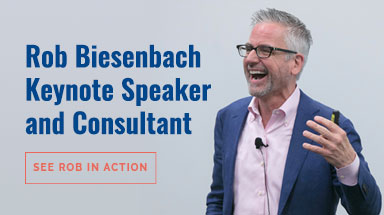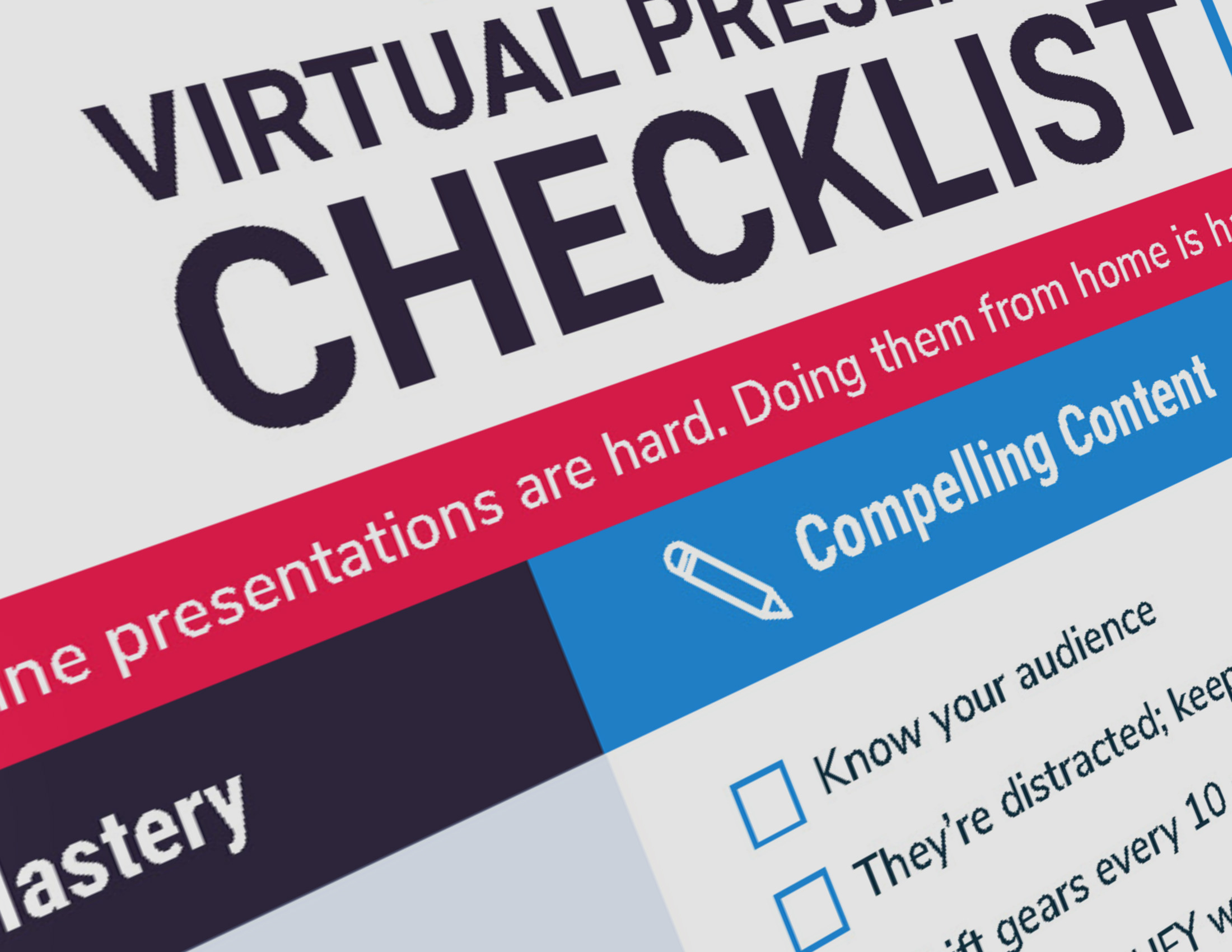
CNN Films
There’s a documentary coming out this fall on the late Gilda Radner, one of the original cast members of Saturday Night Live. Called “Love, Gilda,” it’s getting a lot of buzz.
In talking about what made her funny, Radner explained, “My biggest motivation has always been love.” That much is obvious. From the exuberance of her performances to her seemingly constant smile, she positively glowed from the inside out.
What may not be obvious is that love is a foundation of the comedy training she went through at The Second City theater. And it occurred to me that this idea, as with so many principles and techniques from the world of performance, can be directly applied to how we conduct ourselves in life and in the workplace.
Far more than a “warm and fuzzy” concept, love offers a practical guide for advancing your career, achieving success and, of course, finding and spreading happiness. Before I discuss how, watch the trailer if you haven’t yet:
Lesson 1: Share the Real You
Do you feel the love? I don’t think you have to be a huge fan of Radner’s work to be moved by her story. And that’s the first lesson: be open and generous in sharing your passions and personality.
Some of my executive clients are reluctant to reveal too much of themselves, but I tell them what I’m telling you now: it is absolutely infectious, and can help you break down walls, develop relationships and build your influence.
Before we get to the rest of the lessons, let’s back up and talk for a moment about love and the art of improv comedy.
Love is the Foundation of Improv
When I studied at Second City’s training center, the instructors always emphasized that if you are ever at a loss for what to do or say in a scene, you can’t go wrong by coming from a place of love. This is actually a hard lesson for many young male improvisers, who tend to predominate (and, to their detriment, dominate) the field.
These guys (and, I confess, I was one of them, if not exactly young), believe that to create the necessary conflict in a scene they have to be aggressive, combative, and hostile. But when you think about it, what kind of conflict is most riveting? Is it between two people who hate each other or two people who love each other?
So always come from a place of love. If you can manage that, it will have a positive impact on the way you navigate your life, the workplace and the marketplace — from how you network to how you manage people to your everyday interactions.
Lesson 2: Listen to Others
Improv reminds us that life is not about US, but about other people. That starts with actually listening to what others have to say.
Improv is all about listening — tuning into what’s happening on stage. And it’s HARD. If you’re in a big scene with multiple characters, keeping track of details large (am I that person’s boyfriend or son?) and small (did I just walk through a coffee table?) is vital.
We used to spend hours and hours doing intense listening exercises to build this muscle. I admit I was never a great listener, but with a lot of focus I’m getting better.
So as you make your way through work and life, be sure to turn off your internal analyzer, judger, predictor and really tune in to what people are telling you. Ask questions. Don’t interrupt. (Here are 7 tips for becoming a better listener, by the way.)
Lesson 3: Support Others
One of the key rules of improv is to make your scene partner look good. By supporting them, by building on their ideas, by figuratively giving them gifts, that will make you look good. It will also lead to a better scene, it will raise up the ensemble, and contribute to a better overall show.
Again, it is not about YOU.
Support others by sharing the credit for successes, helping out wherever possible, and providing advice and guidance for people at the start of their careers (answer those emails! sit down for coffee if you can!).
Lesson 4: Network Better
If you’re an introvert (and so many people I meet tend that way), your worst nightmare is a room full of strangers with whom you’re forced to mingle. And the pressure is only increased by the many experts who preach that you enter a networking situation with a specific strategy (I want to meet this person, be connected to that person, get this message out, etc.).
The best advice I’ve heard on networking came from a friend (a raging extrovert, by the way) who said that his attitude going into events is to think foremost about how he can help others.
This has been a revelation for me. Suddenly, all the pressure is off, because it’s not about ME (What will I accomplish? Will I connect with the “right” people? Will they like me?), it’s about helping others. What answers or information can I provide? Who can I connect people with?
And if you believe in karma, or that what goes around comes around, you can also be assured that this strategy might even benefit you in some way down the road.
One other tip: when you do manage to integrate yourself into a conversation, keep your eyes open. Look for the loners hanging out at the periphery, trying to find their place in the crowd. Open up your group, invite them in and introduce them to the others. Some thoughtful person will likely do the same for you someday.
Lesson 5: Think Before You Speak
Meetings can be interminable, especially when everyone feels the need to speak their mind, regardless of the value of what they have to contribute.
When I’m in a meeting and have the urge to say something, I always ask myself this question: “Do I want to help or to impress?” If it’s legitimately the former, I speak up. If it’s just the latter, I hold my tongue.
It’s all about thinking of others instead of just about yourself. And the beauty of it is, by helping others, you also get to impress!
Lesson 6: Be a More Humane Manager
When managing others, there are two important rules I live by: assume innocence and assume competence.
Assuming innocence means when something goes wrong, you resist the urge to blame the member of the team you think is responsible or ascribe a negative motivation (they were sloppy or lazy or inattentive).
Mistakes happen for lots of reasons — some beyond the control of the responsible party. Maybe someone else let them down. Maybe there was an external factor beyond their control. Maybe the fault is yours. Perhaps you didn’t communicate your expectations clearly.
The closely related principle of assuming competence means when you see or hear something that you think is incorrect, don’t automatically declare it to be wrong. Facts change, situations evolve, and people may be privy to information you don’t have.
In both cases it’s better to ask questions than make pronouncements. What happened? Where did you get that information? Are you sure about that? That doesn’t jibe with what I’ve heard. Are you sure you sent it? I don’t have a record of receiving it. And so on.
Lesson 7: Don’t Sweat “the Competition”
I’ve been in business for myself for almost two decades, and exactly twice in that time have I been denied an opportunity because somebody considered me “the competition.” Both times I felt like consulting the calendar to be sure it wasn’t 1950.
Who thinks in terms of competition these days? Insecure people, that’s who.
When I wrote my book on presentation skills, I shared it with presentation experts I admire — many of them strangers. And I was happily surprised by how many of them agreed to plug the book, write a blurb or review, or invite me to guest blog.
One of those experts actually orders my book for her own workshop participants! Does she worry that her clients will see my name on the cover and abandon her for me? Of course not! She’s the one with the relationship. (And if they did leave, that’s a sign it wasn’t a relationship worth having anyway!)
It’s an exceedingly small world. Today’s competitor could well be tomorrow’s collaborator. It’s also a large world, with room enough for everyone, and a rising tide does indeed raise all ships.
So be open with information and generous with your help. It’s absolutely absurd to let some outdated notion of competition shut out what may turn into a great opportunity.
Lesson 8: Practice Empathy
It’s been said so many times in so many ways, but you really never know what other people are going through, what private battle they may be fighting — a broken relationship, an ailing loved one, a career struggle.
I’ve taken to calling this “the cancer rule.” Gilda died way too young from the disease, and it’s not a bad idea to think that everyone you meet who may cause you some minor or major annoyance (the barista who messes up your order, the driver who cuts you off in traffic, the clerk who takes too long) is either suffering from cancer or is dealing with a friend or relative who is.
In fact, it’s a safe bet that more than half the people you come across meet that threshold.
So be kind, be charitable, be understanding. Practice love.
Lesson 9: Love Unconditionally
I’ll be the first to admit that when it comes to these last two lessons, I struggle. I am ridiculously impatient, too often striking out in a negative way (in my mind, if not in action). And I’m terribly judgmental.
So it’s something I continue to work on. Having kids has helped me. I really have never experienced quite this level of love, and in some ways I feel Teddy and Lily have saved me.
Not that you need children to feel “real” love. I did, but I know many childless people who are kinder and more giving than I will ever be. They love their family, their friends, their community, their pets.
Which brings us to another Gilda quote:
“I think dogs are the most amazing creatures; they give unconditional love. For me they are the role model for being alive.”
From what I understand, Gilda’s story was complicated, like all of ours. But in her short time here she did seem to bring happiness to a lot of people, if not always to herself. I’m looking forward to learning more about her from the movie, and to continuing to be inspired by her work and her life.




